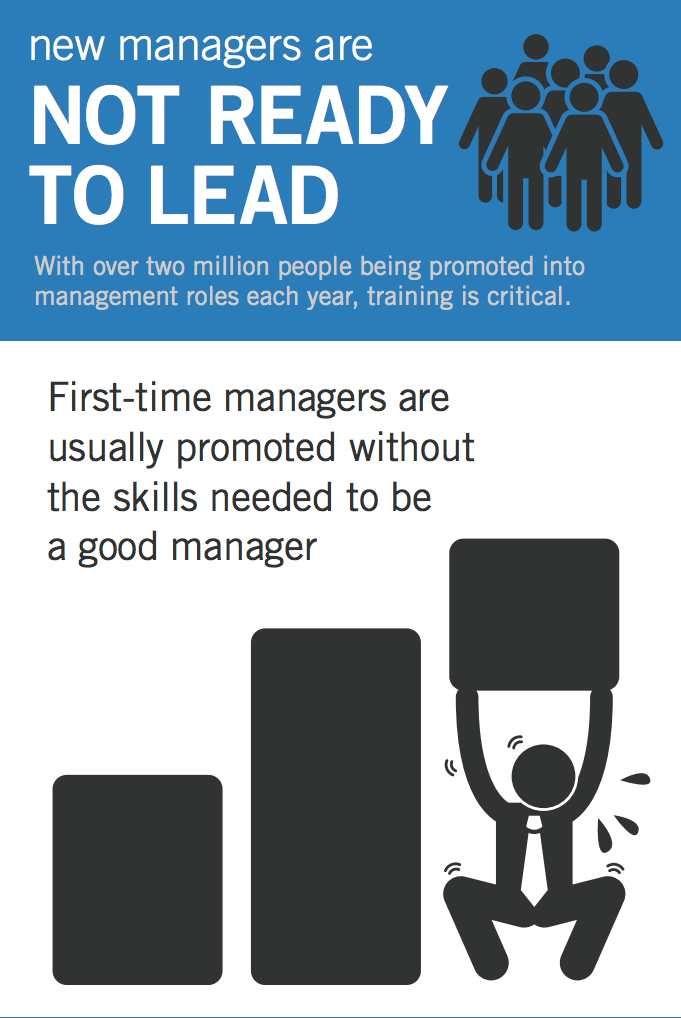
This way, almost every team member contributes to the organization's success. It helps them spread tasks within the team based on competencies. Delegating responsibilitiesĭelegation of tasks is an essential people management skill that every manager should possess. Effective prioritization helps them stay focused and avoid becoming overwhelmed with multiple projects. Strong prioritization skills enable new managers to understand which tasks to handle first and which to delegate. In doing so, they’ll identify their leadership style.

They also need a commitment to continually work on their leadership skills. When new managers transition to a leadership role, they need more than just the knowledge to do the job. Organizations can leverage reverse mentoring to train new managers about technology and keep up with emerging trends. To be effective, a manager must have a strong understanding of processes, use technology to streamline operations and increase efficiency.Ī first-time manager needs this knowledge to succeed. Some managers excel at managing people, while others are better at managing processes. To improve team performance, organizations should prioritize quality training for their managers. Gallup showed this to be true, finding that 70% of employee engagement variance is due to the manager.

An SHRM study cited above found 50% of employees believe more people management training for their supervisor would boost their performance. Managers greatly impact team performance. Team performance and productivity nosedives if the manager isn't thriving Managers have a significant influence on employee retention. Training new managers with the skills and knowledge to manage their employees can reduce turnover. A Gallup study found that 50% of employees who quit their jobs do so because of a bad manager.Īn SHRM study also showed that 84% of American employees say poorly trained managers add unnecessary work and stress. Poorly trained managers have been shown to contribute to employee turnover. Managers influence employee retention more than everything else Providing managers with effective training helps them manage teams, handle difficult situations, and make decisions in the company's best interest. This lack of training creates disengaged employees and high turnover rates. Their success depends on itĪccording to Gallup, only 18% of managers have the skills to manage others, resulting in ineffective leadership and struggles to meet goals. When you have well-trained managers capable of taking on bigger roles, it helps ensure that the company will continue to grow and thrive. Training new managers helps ensure the company has a strong leadership pipeline (many companies that get this right have leadership mentoring programs). Companies with well-trained managers had significantly lower employee turnover rates than those without well-trained managers. And this turnover has cost companies $223 billion in the last five years. The high cost of toxic workplace culture report shows that 60% of employees who left blamed their managers. This is a problem because, during those early years of transition into a leadership role, new managers are expected to perform at the same level as their more experienced colleagues. This means managers don't get formal training for a whopping 10 years into the leadership role. After promotion, many don't get the necessary training until they are 42. Most people in these companies become supervisors at age 30 and stay in that role for nine years. Harvard Business Review reviewed the training of over 1700 leaders across different organizations. Why is it critical to train new managers?

mentorship from more experienced managers.This type of training can be delivered in various ways but typically includes a combination of: New manager training is a process through which new managers learn the skills and knowledge necessary to manage a team effectively. There should be a focus on application and practice. The program should be flexible to meet the needs of each individual and your organization’s goal.To have effective new manager training in your workplace, you need to keep a few things in mind: These numbers are staggering and should cause companies to look at their new manager training program.

63% feel ineffective after six months, and 50% still don’t feel effective after a year, according to Brian Rollo Consulting Group. This lack of training and support has made many new managers redundant. Little wonder, 98% of managers feel new managers need more training to deal with crucial issues such as employee turnover, project management, and more. Corporations spend more to develop senior leaders than train new managers.


 0 kommentar(er)
0 kommentar(er)
